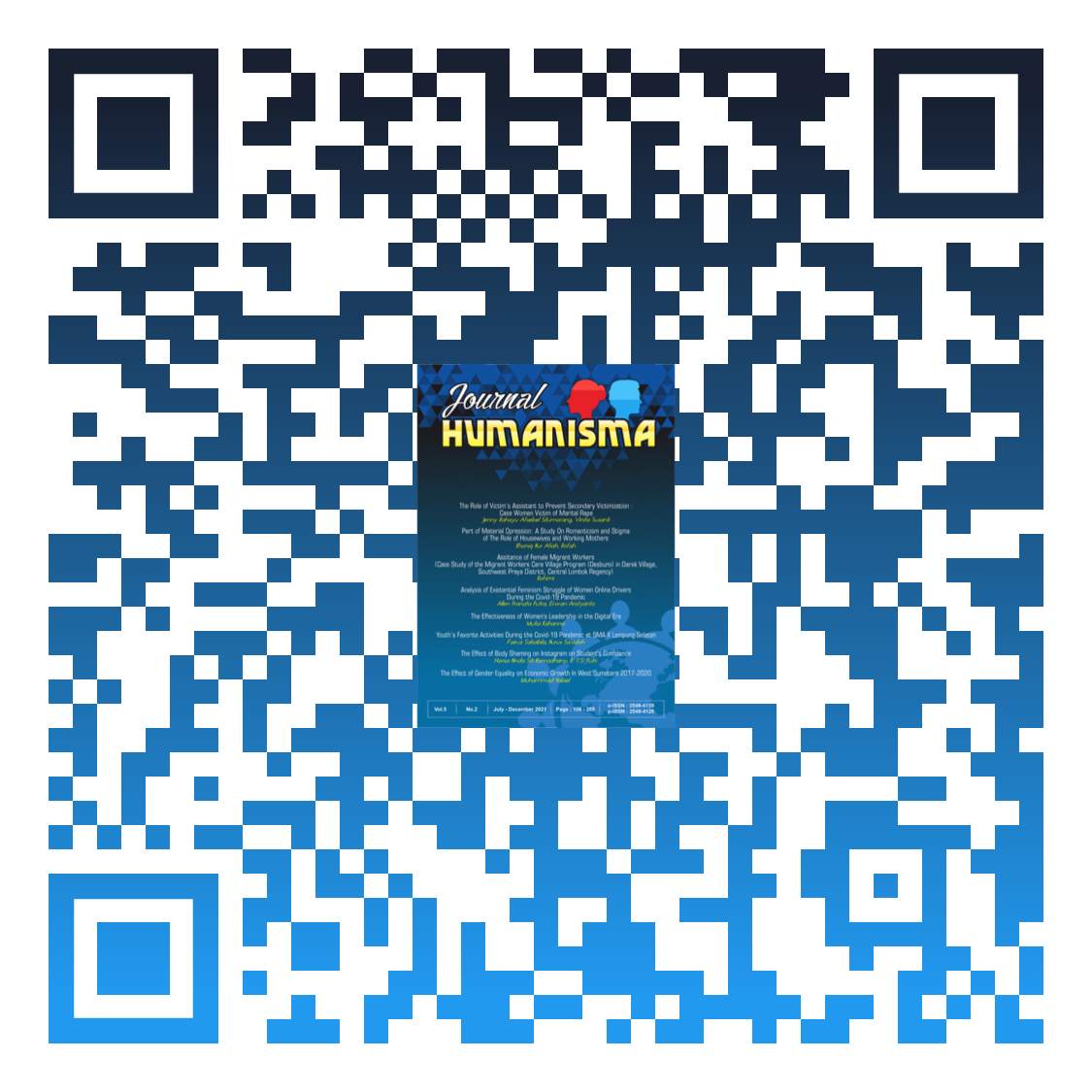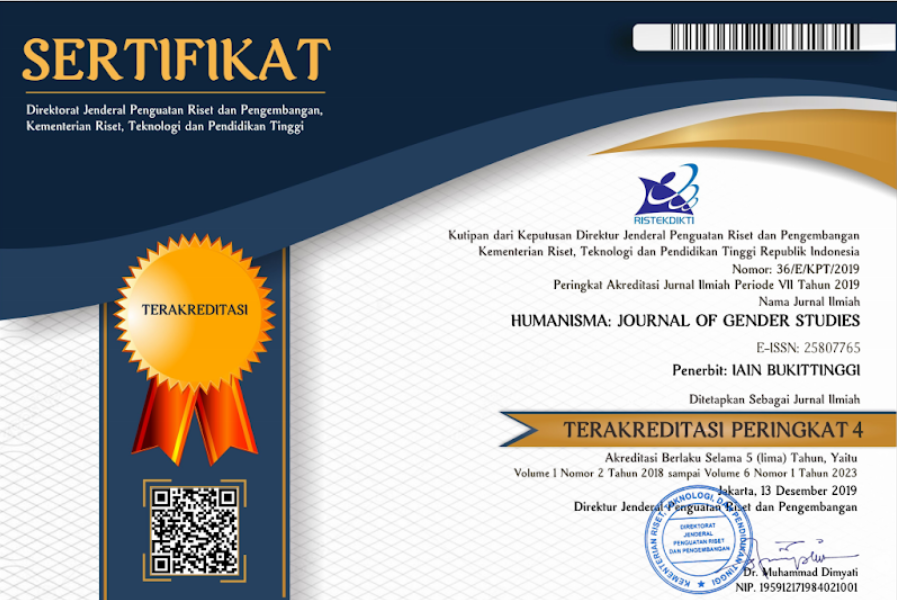The Empowerment Effect of Womens Acces to Hygiene and Utilization Status In Rural Areas of East Gojjam Zone Northwest Ethiopia
Authors :
Abstract
The empowerment has become a common component of water, sanitation, and hygiene (WASH) interventions. However, there is limited evidence on whether access to and utilization of WASH facilities have contributed to the empowerment of women. This study aimed to understand the empowerment effect of women’s access to hygiene and utilization status in selected rural areas of Gozamin and Machakel districts in the East Gojjam Zone, Ethiopia. The analyses were conducted based on responses from 325 married women selected through a multi-stage cluster sampling technique. Gologit2 was used to estimate the correlation between women’s access to hygiene and utilization level and their empowerment status. The gologit2 estimation identified hygiene utilization to have a statistically significant association with women empowerment in terms of self-esteem, household decision-making, and participation in rural health extension activities. A woman with a high hygiene utilization level was 2.5 times more likely to be empowered than a woman with low hygiene utilization level was. However, no statistically significant correlation was found between women’s access to hygiene and their empowerment status. It showed that the mere presence of hygiene facilities did not empower women unless these were actually utilized. Therefore, the researcher recommended that the government strengthen its work to promote and monitor women’s hygiene utilization in addition to the availability of hygiene facilities in the household.
Pemberdayaan telah menjadi bagian komponen umum dari air, sanitasi, dan kebersihan (WASH). Namun, ada bukti terbatas tentang apakah akses dan pemanfaatan fasilitas WASH telah berkontribusi pada pemberdayaan perempuan. Penelitian ini bertujuan untuk memahami pengaruh pemberdayaan akses perempuan terhadap status kebersihan dan pemanfaatan di daerah pedesaan terpilih di distrik Gozamin dan Machakel di Zona Gojjam Timur Ethiopia. Analisis kami didasarkan pada tanggapan dari 325 wanita menikah yang dipilih melalui teknik sampling cluster multi-stage. Gologit2 digunakan untuk memperkirakan hubungan antara akses perempuan ke tingkat kebersihan dan pemanfaatan dan status pemberdayaan mereka. Estimasi gologit2 mengidentifikasi pemanfaatan kebersihan memiliki hubungan yang signifikan secara statistik dengan pemberdayaan perempuan dalam hal harga diri, pengambilan keputusan rumah tangga, dan partisipasi dalam kegiatan penyuluhan kesehatan pedesaan. Wanita dengan tingkat pemanfaatan higiene yang tinggi memiliki kemungkinan 2,5 kali lebih besar untuk diberdayakan dibandingkan dengan wanita dengan tingkat pemanfaatan higiene yang rendah. Namun, tidak ditemukan hubungan yang signifikan secara statistik antara akses perempuan terhadap kebersihan dan status pemberdayaannya, yang menunjukkan bahwa keberadaan fasilitas kebersihan saja tidak memberdayakan perempuan kecuali jika fasilitas tersebut benar-benar dimanfaatkan. Kami, oleh karena itu; merekomendasikan agar pemerintah memperkuat pekerjaannya untuk mempromosikan dan memantau pemanfaatan kebersihan oleh perempuan selain ketersediaan fasilitas kebersihan di rumah tangga.
Keywords
Full Text:
PDFReferences
Journal
Abu, Thelma Zulfawu, Elijah Bisung, and Susan J. Elliott. 2019. "What If Your Husband Doesn’T Feel The Pressure? An Exploration Of Women’S Involvement In Wash Decision Making In Nyanchwa, Kenya". International Journal Of Environmental Research And Public Health 16 (10): 1763. doi:10.3390/ijerph16101763.
Azage, Muluken, Achenef Motbainor, and Dabere Nigatu. 2020. "Exploring Geographical Variations And Inequalities In Access To Improved Water And Sanitation In Ethiopia: Mapping And Spatial Analysis". Heliyon 6 (4): e03828. doi:10.1016/j.heliyon.2020.e03828.
Bogale, Getahun Gebre. 2020. "Hotspots Of Unimproved Sources Of Drinking Water In Ethiopia: Mapping And Spatial Analysis Of Ethiopia Demographic And Health Survey Data 2016". BMC Public Health 20 (1). doi:10.1186/s12889-020-08957-2.
Dery, Florence, Elijah Bisung, Sarah Dickin, and Michelle Dyer. 2019. "Understanding Empowerment In Water, Sanitation, And Hygiene (WASH): A Scoping Review". Journal Of Water, Sanitation And Hygiene For Development 10 (1): 5-15. doi:10.2166/washdev.2019.077.
Geere, Jo-Anne L, Paul R Hunter, and Paul Jagals. 2010. "Domestic Water Carrying And Its Implications For Health: A Review And Mixed Methods Pilot Study In Limpopo Province, South Africa". Environmental Health 9 (1). doi:10.1186/1476-069x-9-52.
Golam Mostofa, Ismail Tareque, Morshedul Haque and Towfiqua Mahfuza Islam, 2008. Mathematical Modeling of Women Empowerment in Bangladesh. Research Journal of Applied Sciences, 3: 416-420.
Graham, Jay P., Mitsuaki Hirai, and Seung-Sup Kim. 2016. "An Analysis Of Water Collection Labor Among Women And Children In 24 Sub-Saharan African Countries". PLOS ONE 11 (6): e0155981. doi:10.1371/journal.pone.0155981.
Hirai, Mitsuaki, Jay P. Graham, and John Sandberg. 2016. "Understanding Women's Decision Making Power And Its Link To Improved Household Sanitation: The Case Of Kenya". Journal Of Water, Sanitation And Hygiene For Development 6 (1): 151-160. doi:10.2166/washdev.2016.128.
Jadhav, Apoorva, Abigail Weitzman, and Emily Smith-Greenaway. 2016. "Household Sanitation Facilities And Women’S Risk Of Non-Partner Sexual Violence In India". BMC Public Health 16 (1). doi:10.1186/s12889-016-3797-z.
Leahy, Caitlin, Keren Winterford, Tuyen Nghiem, John Kelleher, Lee Leong, and Juliet Willetts. 2017. "Transforming Gender Relations Through Water, Sanitation, And Hygiene Programming And Monitoring In Vietnam". Gender & Development 25 (2): 283-301. doi:10.1080/13552074.2017.1331530.
Mahmud, Simeen, Nirali M. Shah, and Stan Becker. 2012. "Measurement Of Women’S Empowerment In Rural Bangladesh". World Development 40 (3): 610-619. doi:10.1016/j.worlddev.2011.08.003.
Mahrukh, Saleem, Teresa Burdett and Vanessa Heaslip. 2019. Health and social impacts of open defecation on women: a systematic review. BMC Public Health 19, 158. https://doi.org/10.1186/s12889-019-6423-z
Niketha, L., Gopal Sankhala, Kamta Prasad, and Sanjeev Kumar. 2017. "Empowerment Of Women Through Dairy Cooperatives In Karnataka, India". International Journal Of Current Microbiology And Applied Sciences 6 (7): 1292-1304. doi:10.20546/ijcmas.2017.607.156.
Oswald, William E., Tesfaye Teferi, Paul M. Emerson, Zerihun Tadesse, Elizabeth K. Callahan, Eshetu Sata, and Aisha E. P. Stewart et al. 2016. "Prediction Of Low Community Sanitation Coverage Using Environmental And Sociodemographic Factors In Amhara Region, Ethiopia". The American Journal Of Tropical Medicine And Hygiene 95 (3): 709-719. doi:10.4269/ajtmh.15-0895.
Pervin, Shahida, Md. Azam Khan, and Md. Mahmud Hasan Shah. 2014. "Household-Level Analysis Of Women's Power Practice In Old Dhaka City, Bangladesh". Journal Of Comparative Asian Development 13 (1): 174-203. doi:10.1080/15339114.2014.899070.
Rheingans, Richard, John D. Anderson, Rolf Luyendijk, and Oliver Cumming. 2013. "Measuring Disparities In Sanitation Access: Does The Measure Matter?". Tropical Medicine & International Health 19 (1): 2-13. doi:10.1111/tmi.12220.
Routray, Parimita, Belen Torondel, Thomas Clasen, and Wolf-Peter Schmidt. 2017. "Women's Role In Sanitation Decision Making In Rural Coastal Odisha, India". PLOS ONE 12 (5): e0178042. doi:10.1371/journal.pone.0178042.
Sweetman, Caroline, and Louise Medland. 2017. "Introduction: Gender And Water, Sanitation And Hygiene". Gender & Development 25 (2): 153-166. doi:10.1080/13552074.2017.1349867.
Ucal, Meltem, and Simge Günay. 2019.” Perceived Happiness, Perceived Trust and Perceived Income Levels: The Case of the Reunified Germany." Panoeconomicus, 66(2), 219-239. doi:10.2298/PAN160721031U
Book
Yamane, Taro. 1967. Statistics an Introductory Analysis. 2nd Edition, New York, Harper and Row.
Others
Australian Council for International Development. 2012. "“Now We Feel Like Respected Adults; Positive Change In Gender Roles And Relations In A Timor-Leste WASH Program". ACFID RESEARCH IN DEVELOPMENT SERIES, REPORT NO. 6. International Women's Development Agency Inc. https://iwda.org.au/assets/files/Now-We-Feel-Like-Respected-Adults.pdf.
Central Statistical Agency (CSA) [Ethiopia] and ICF. 2016. Ethiopia Demographic and Health Survey 2016. Addis Ababa, Ethiopia, and Rockville, Maryland, USA: CSA and ICF.
Sanderson, Mark, and Ian Soboroff. 2007. "Problems With Kendall's Tau". In SIGIR '07: Proceedings Of The 30Th Annual International ACM SIGIR Conference On Research And Development In Information Retrieval, 839–840. ACM Press. https://doi.org/10.1145/1277741.1277935.
Splash. 2020. "Ethiopia Menstrual Health Literature Review". https://splash.org/assets/ETH-Literature-Review.pdf.
Williams, Richard. 2005. Gologit2: A program for generalized logistic regression/partial proportional odds models for ordinal dependent variables. Retrieved from https://www.stata.com/meeting/4nasug/gologit2.pdf.
Williams, Richard. 2006. "Generalized Ordered Logit/Partial Proportional Odds Models For Ordinal Dependent Variables". The Stata Journal: Promoting Communications On Statistics And Stata 6 (1): 58-82. doi:10.1177/1536867x0600600104.
Williams, Richard. 2019. Scalar measures of fit: Pseudo R2 and information measures (AIC & BIC), Retrieved from https://www3.nd.edu/~rwilliam.
WoMena. 2017. "Menstrual Health Management In East And Southern Africa: A Review Paper". UNFPA. https://esaro.unfpa.org/sites/default/files/pub-pdf/UNFPA%20Review%20Menstrual%20Health%20Management%20Final%2004%20
World Health Organization. 2006. Guidelines for drinking-water quality [electronic resource]: incorporating first addendum. Vol. 1, Recommendations. – 3rd ed. Accessed from https://www.who.int/water_sanitation_health/dwq/gdwq0506.pdf.
DOI: http://dx.doi.org/10.30983/humanisme.v6i1.5228
Refbacks
- There are currently no refbacks.
Copyright (c) 2022 Haimanot Minwuye Adam

This work is licensed under a Creative Commons Attribution-ShareAlike 4.0 International License.
______________________________________________
 | HUMANISMA : Journal of Gender Studies |




